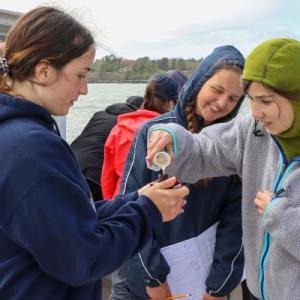Image Id 682263 for Node 255958
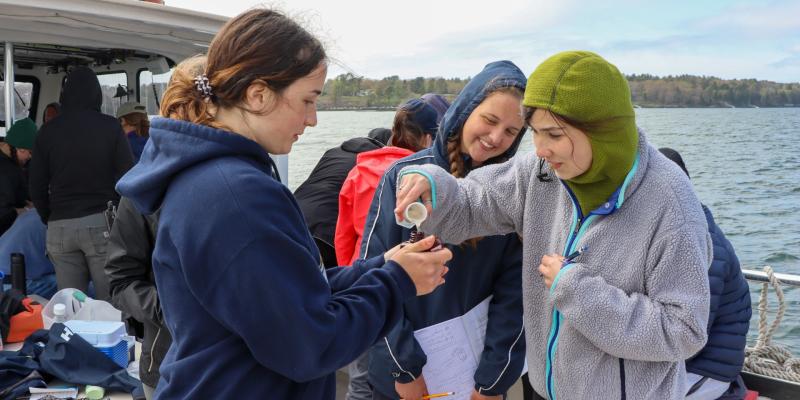 Participants in the 2022 Keller BLOOM program during a research cruise on the Sheepscot River.
Courtesy of Fritz Freudenberger/Bigelow Laboratory for Ocean Sciences
Participants in the 2022 Keller BLOOM program during a research cruise on the Sheepscot River.
Courtesy of Fritz Freudenberger/Bigelow Laboratory for Ocean Sciences
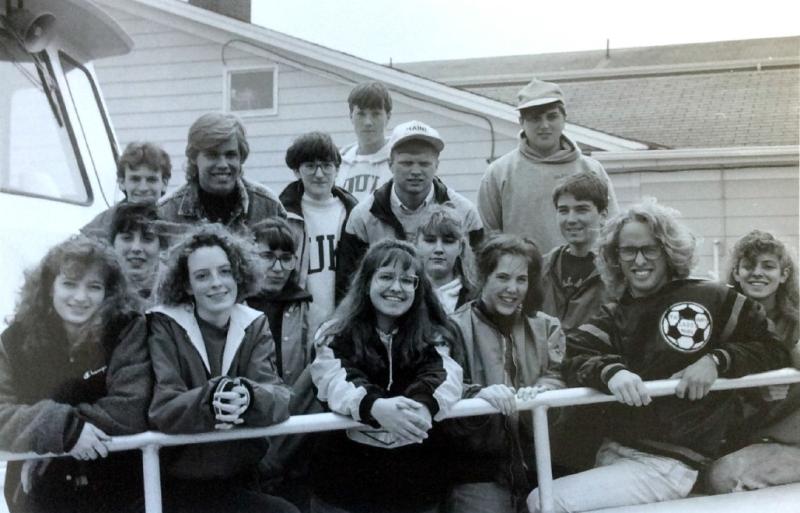 The 1990 inaugural class of Bigelow’s high school program, which would later be renamed Keller BLOOM after founder Maureen Keller. Courtesy of Bigelow Laboratory for Ocean Sciences
The 1990 inaugural class of Bigelow’s high school program, which would later be renamed Keller BLOOM after founder Maureen Keller. Courtesy of Bigelow Laboratory for Ocean Sciences
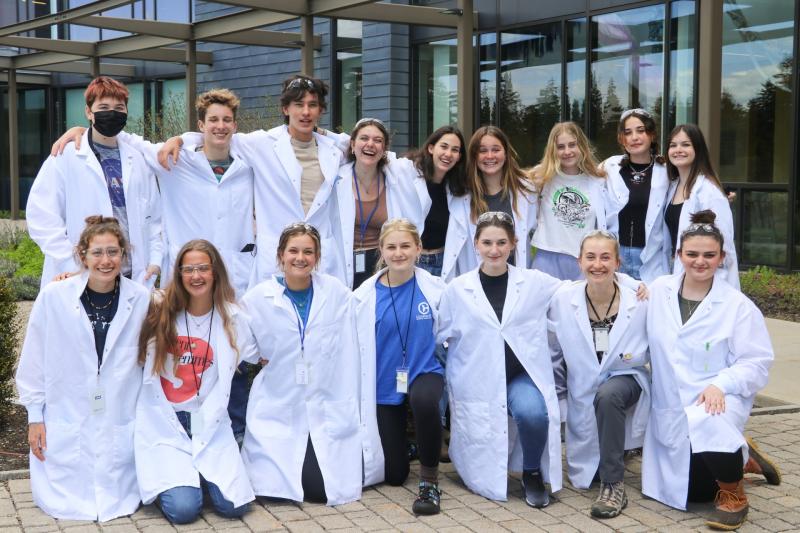 Courtesy of Fritz Freudenberger/Bigelow Laboratory for Ocean Sciences
Courtesy of Fritz Freudenberger/Bigelow Laboratory for Ocean Sciences
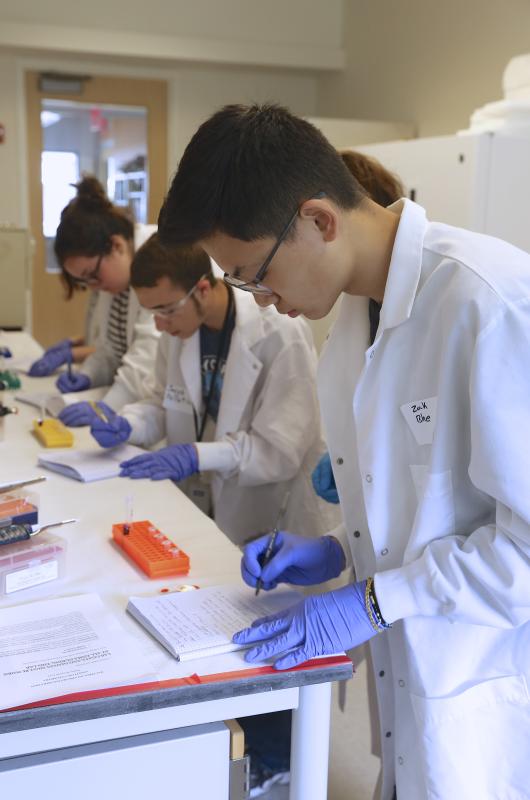 Students analyze samples in the lab. Courtesy of Robert Mitchell/Bigelow Laboratory for Ocean Sciences
Students analyze samples in the lab. Courtesy of Robert Mitchell/Bigelow Laboratory for Ocean Sciences
 Participants in the 2022 Keller BLOOM program during a research cruise on the Sheepscot River.
Courtesy of Fritz Freudenberger/Bigelow Laboratory for Ocean Sciences
Participants in the 2022 Keller BLOOM program during a research cruise on the Sheepscot River.
Courtesy of Fritz Freudenberger/Bigelow Laboratory for Ocean Sciences
 The 1990 inaugural class of Bigelow’s high school program, which would later be renamed Keller BLOOM after founder Maureen Keller. Courtesy of Bigelow Laboratory for Ocean Sciences
The 1990 inaugural class of Bigelow’s high school program, which would later be renamed Keller BLOOM after founder Maureen Keller. Courtesy of Bigelow Laboratory for Ocean Sciences
 Courtesy of Fritz Freudenberger/Bigelow Laboratory for Ocean Sciences
Courtesy of Fritz Freudenberger/Bigelow Laboratory for Ocean Sciences
 Students analyze samples in the lab. Courtesy of Robert Mitchell/Bigelow Laboratory for Ocean Sciences
Students analyze samples in the lab. Courtesy of Robert Mitchell/Bigelow Laboratory for Ocean Sciences
Why walk a mile in someone’s shoes, when you can drive a mile in their research vessel? For the past 35 years, Bigelow Laboratory’s Keller BLOOM program has let over 560 students spend a week as a marine scientist. The no-cost, immersive program is available to all Maine high school juniors (including homeschoolers). The application deadline is April 14.
“What students do in one week here is basically what a typical scientist would do in two or three years,” explained program director Dr. Nicole Poulton.
The moment students start filling out their application (which Poulton likened to grant writing), they’re exposed to scientific life. The experience only continues for the 16 chosen participants who go on to complete field work, laboratory analysis and public presentation.
Field day is spent taking samples of phytoplankton (microscopic plant-like organisms) from four stations along the Sheepscot River, starting in Wiscasset and ending in Southport. Students then formulate questions as they analyze the changes in phytoplankton type based on location and the reasons behind it.
Unlike most classroom lab work that has pre-determined methods and conclusions, this type of experiential learning forces students to problem-solve just like a field scientist. As the joke among Poulton’s colleagues goes, if you propose to do some sort of research and it works the first time, you're not doing it right.
The program’s hands-on aspect also helps students attain a better sense of their future career paths. For instance, some may prefer to be a lab technician where they can focus on scientific work, instead of a group research leader who has to worry about obtaining funding.
“It's all about learning the mechanics of what it's like to be a scientist, and that may or may not be what someone wants to do. The majority of our students love science, they love the program, and they move on in that field, but I think (those who don’t are) equally as important.”
Bigelow has seen multiple success stories for those who have stayed in the field. Many former BLOOM students have remained in Maine to teach in higher education, perform research for private companies, repair lab instruments, or pursue other areas of scientific study beyond marine.
Poulton, who has spearheaded the program since 2005, was recently recognized for her commitment to aquatic science education for students. She received the 2025 Margalef Award from the Association for the Sciences of Limnology and Oceanography (ASLO).
“(This program) is a week's worth of my time, but the benefit to students is amazing.”

